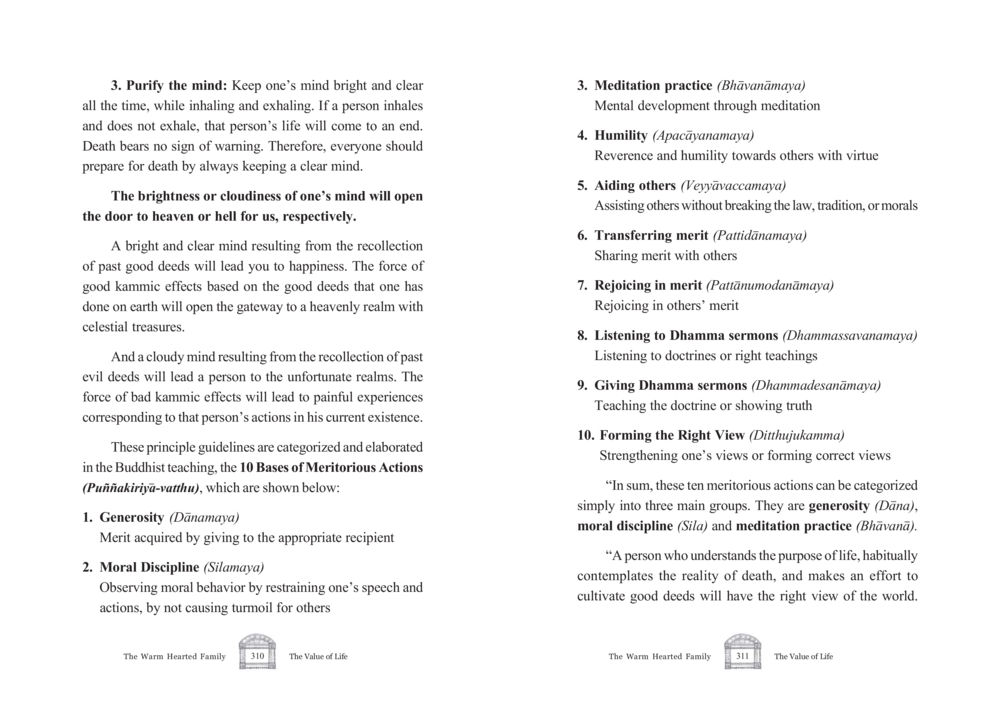Purification of the Mind: A Path to Enlightenment : หน้า 156/207
The Warm Hearted Family : หน้า 156/207 Explore the importance of a clear mind in Buddhism and the ten meritorious actions leading to happiness.
0 ครั้ง

สรุปเนื้อหา
This text emphasizes the importance of maintaining a clear and bright mind through inhalation and exhalation. It explains how a person's mental state can determine their spiritual fate in the afterlife, distinguishing between the rewards of good kamma from past deeds and the painful consequences of bad kamma. It outlines the 10 Bases of Meritorious Actions, which include generosity, moral discipline, meditation, and the significance of cultivating good deeds for a positive life view. The main categories include generosity, moral discipline, and meditation practice, guiding individuals towards enlightenment and a better understanding of life and death. By fostering these principles, one can prepare for death with a clear mind, ultimately leading to happiness and spiritual advancement.
หัวข้อประเด็น
-Importance of a clear mind
-The concept of kamma
-10 Bases of Meritorious Actions in Buddhism
-Connecting mental clarity to spiritual well-being
-Generosity, moral discipline, and meditation practices
ข้อความต้นฉบับในหน้า
หน้าหนังสือทั้งหมด















































































































































































































